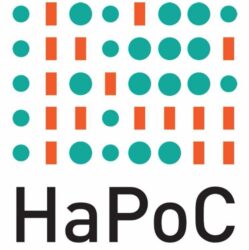, The Science of Computing — Shaping a Discipline. CRC Press – Taylor & Francis Group, 2015.
Philosophy & Technology (Springer) new supplements series
Giuseppe Primiero (vice-president of the HaPoC Commission) has been nominated member of the Executive Editorial Board of the Journal Philosophy & Technology (Springer) for the Area of Philosophy of Computer Science & Technology. The Journal will inaugurate a new supplements series, for issues entirely related to each of the areas of competence in the Executive Editorial Board. If you have plans to edit a collections of papers in the area of History/Philosophy of Computer Science, please do contact Giuseppe at G.Primiero@mdx.ac.uk to discuss P&T as a possible venue for publication!
CFP: Seventh Workshop on the Philosophy of Information “Conceptual challenges of data in science and technology”
CfP available on the website of the Society for the Philosophy of Information:
HaPoC Council Meeting
On Tuesday 21 October 2014, the HaPoC Commission Council composed by Liesbeth de Mol, Giuseppe Primiero, Benedikt Loewe, Raymond Turner, Helena Durnova and gerard Alberts met in London. This was our annual Council meeting.
The discussion was focused on the present and the future of HaPoC, and its activities. In particular, the Council has considered:
– the current structure of HaPoC and the engagement of its members;
– the forthcoming Third Conference on the History and Philosophy of Computing (stay tuned for more news soon!);
– the financial and administrative status of the Commission;
– the organization of other forthcoming events (again, be alert!);
– the possibilities of new activities and our publications plans.
The future of the HaPoC Commission is in all its members and the Council hopes to engage you more in leading the activities that are being planned. You will hear from us soon again with details of all the topics discussed in London!
Walter Isaacson on the women of ENIAC
An excerpt from the book The Innovators by Walter Isaacson on the women who programmed ENIAC.
http://fortune.com/2014/09/18/walter-isaacson-the-women-of-eniac/
CFP: Workshop on Logic and Information (5th UNILOG)
Workshop at the Fifth World Conference on Universal Logic
25-30 June 2015
University of Istanbul
http://www.socphilinfo.org/news/cfp/469-workshop-logic-and-information-5th-unilog
In this workshop we want to approach the relation between logic and information from the perspective of the philosophy of information, as well as from a logical perspective, and draw attention to a number of questions that have historically received attention, or have only been individuated in recent years. These include the possibility of a genuine informational conception of logical consequence, the relation between informational and computational approaches, the relation between information and logics of questions, and the difference between (what van Benthem calls) implicit informational stances in logic like that of intuitionist logic and explicit stances like that of epistemic logic.
Keynote speaker
Luciano Floridi (OII, Oxford University)
Call for abstracts
Extended abstracts (1000-1500 words) should be sent via e-mail before November 15th 2014 to: workshop@logicandinformation.be
Organisers
The workshop is hosted by Universal Logic 2015 and organised in collaboration with the Society for the Philosophy of Information.
Workshop chairs are: Patrick Allo and Giuseppe Primiero
Workshop on Philosophy of Computer Science
This workshop is co-located with the 5th Universal Logic and organized by Petros Stefaneas (National Technical University of Athens, Greece) and Nicola Angius (University of Sassari, Italy). Deadline for extended abstracts submission is November 15th, 2014.
CiE15 HaPoC Special Session
HaPoC is organising a new Special Session on History and Philosophy of Computing at the CiE2015 Evolving Computability Conference, to be held in Bucharest, Romania from June 29th to July 3rd. This new event will be organised by Marco Benini (University of Insubria) and Christine Proust (CNRS & Université Paris Diderot). The community is very grateful for their help in setting up this new Special Session and we are looking forward for a new exciting programme!
On Software Intensive Science
Among the most discussed issues of the research area of philosophy of computing these days are certainly the nature, methodology and experimental characteristics of Software Intensive Science. A recent article in Philosophy & Technology by John Symons, Jack Horner has explicitly approached SIS, available here:
http://link.springer.com/article/10.1007/s13347-014-0163-x
The article is followed by two short comment papers, by Nicola Angius here
http://link.springer.com/article/10.1007/s13347-014-0173-8
and by Giuseppe Primiero, here
A Wider Scope of Inquiry
When I was a programmer, and even when I was a teacher of programming, I would wonder about where data structures and algorithms came from, and to what extent people use pass-by-value, pass-by-reference, and pass-by-name for communication in daily life, and whether we use those techniques for activities besides communication, and whether the universe somehow uses those techniques, and about many other speculative questions. Now those questions attract me to the philosophy of computer science. But the phenomena yielded by computing don’t seem to be commonly studied as philosophical subjects. Most inquiry is embedded in, and therefore directed by, the computational model, applying symbols, inductive definitions, and set-theoretic operations to philosophical questions about computing. I propose turning this inside out, identifying the significant artifacts of computer science and giving them philosophical treatment in their own right, outside of the digital realm.
In this spirit, I offered a contribution during the HaPoC symposium at IACAP 2014, applying questions of ontology to the algorithm. What else is possible? See a few ideas at the blog “Teaching the Philosophy of Computer Science,” at http://teachingphilofcs.blogspot.com/, particularly the most recent entry, for June 27, 2014.
Formal models and explanations are important. They give us incomparable insight, foundation, and inspiration. The other approach suggested here should be regarded as complementary. And there must be work out there already that falls into this category, of which I am simply ignorant; members who are conversant with such work are invited to note it here.
